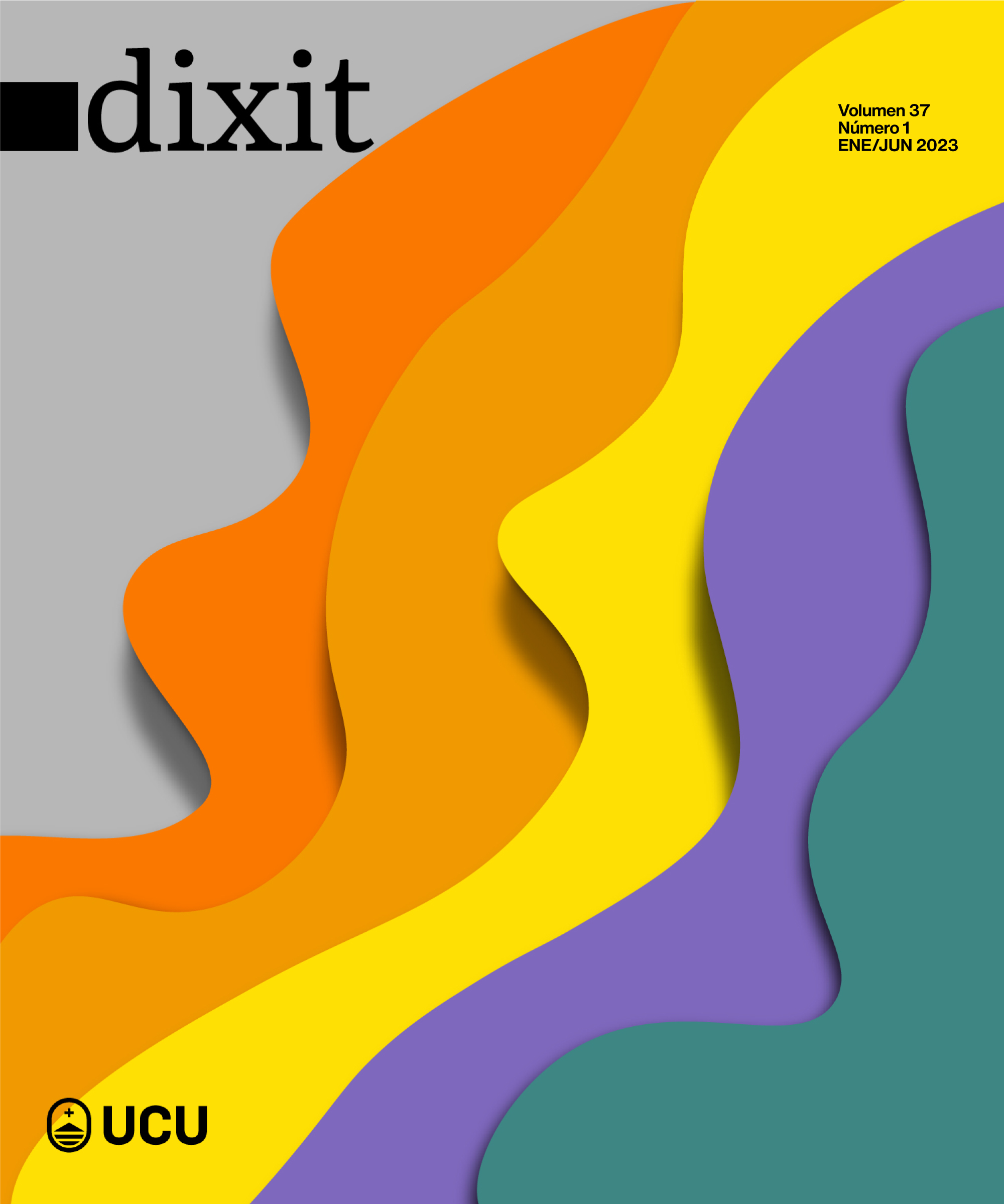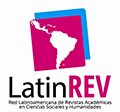Open journalism as a communication strategy against disinformation
DOI:
https://doi.org/10.22235/d.v37i1.2813Keywords:
open journalism, transparency, participation, fact-checking, disinformation, media opennessAbstract
Disinformation has acquired great relevance in recent years, which has led to the emergence of journalistic projects that have specialized in verifying content that work with a methodology verified by international networks of fact-checkers. In the context of these work methodologies, open journalism applies mechanisms that promote transparency and participation in professional routines and that can be beneficial for the development of these verification initiatives. In this research, two pioneering initiatives in Spain in content verification, Newtral and Maldita.es, are studied, with an analysis of the content of their platforms and in-depth interviews with their managers, with the aim of verifying the level of application of open journalism in their platforms. work routines, as well as to evaluate the possibility of this current to favor media education and improve the production of journalistic content in a context of disinformation.
Downloads
References
Aitamurto, T. (2019). Crowdfunding for Journalism. The International Encyclopedia of Journalism Studies. Recuperado de https://doi.org/10.1002/9781118841570.iejs0064
Bloch, M. (1999). Historia e historiadores. Madrid, España: Akal.
Boczkowski, P. (2017). La postverdad. Revista Anfibia. Recuperado de https://www.revistaanfibia.com/la-postverdad/
Bowman, S., & Willis, C. (2005). Nosotros, el medio: cómo las audiencias están modelando el futuro de la noticia y la información. Arlington, VA: American Press Institute.
Coromina, O., & Padilla, A. (2018). Análisis de las desinformaciones del referéndum del 1 de octubre detectadas por Maldito Bulo. Quaderns del CAC, 21(44), 17-26. Recuperado de https://www.cac.cat/sites/default/files/2019-01/Q44_Coromina_Padilla_ES.pdf
Deuze, M. (2001). Online journalism: Modelling the first generation of news media on the World Wide Web. First Monday, 6(10). https://doi.org/10.5210/fm.v6i10.893
De Cock, B. (2018). A multi-dimensional approach to disinformation: report of the independent High-level Group on fake news and online disinformation. Luxemburgo: Publications Office of the European Union.
Fernández-Barredo, Á. (2014). La expansión del rumor en los medios digitales. En F. Sabés y J. Verón (Eds.), Universidad, Investigación y Periodismo digital (pp.19-36). Zaragoza, España: Asociación de Periodistas de Aragón.
García Orosa, B., Gallur Santorun, S., & López García, X. (2017). El uso del clickbait en cibermedios de los 28 países de la Unión Europea. Revista Latina de Comunicación Social, 72, 1261–1277. https://doi.org/10.4185/RLCS-2017-1218
García Serrano, J., Romero Rodríguez, L. M., & Hernando Gómez, Á. (2019). Análisis del clickbaiting en los titulares de la prensa española contemporánea. Estudio de caso: diario El País en Facebook. Estudios Sobre El Mensaje Periodístico, 25(1). https://doi.org/10.5209/ESMP.63724
Kuklinski, J. H., Quirk, P. J., Jerit, J., Schwieder, D., & Rich, R. F. (2000). Misinformation and the currency of democratic citizenship. The Journal of Politics, 62(3), 790-816. Recuperado de https://www.jstor.org/stable/2647960
Lazer, D. M., Baum, M. A., Benkler, Y., Berinsky, A. J. Greenhill, K. M., Menczer, F., … Zittran, J. (2018). The science of fake news. Science, 359(6380), 1094-1096. http://dx.doi.org/10.1126/science.aao2998
Leonard, A. (1999). Open-source journalism. Salon.com. Recuperado de https://www.salon.com/1999/10/08/geek_journalism/
López Cepeda, A. M., Ufarte Ruiz, M. J., & Murcia Verdú, F. J. (2019). Medios audiovisuales de servicio público y desinformación. Principales políticas y estrategias contra las noticias falsas. En Las nuevas narrativas, en el entorno social (pp. 155-170). Tenerife, España: Cuadernos Artesanos de Comunicación.
López Pan, F., & Rodríguez Rodríguez, J. M. (2020). El Fact Checking en España. Plataformas, prácticas y rasgos distintivos. Estudios sobre el Mensaje Periodístico, 26(3). 1045-1065. https://doi.org/10.5209/esmp.65246
Lotero-Echeverri, G., Romero-Rodríguez, L. M., & Pérez-Rodríguez, M. A. (2018). Fact-checking vs. Fake news: Periodismo de confirmación como componente de la competencia mediática contra la desinformación. Index. Comunicación, 8(2), 295–316. Recuperado de https://indexcomunicacion.es/index.php/indexcomunicacion/article/view/370
Maldita.es. (s. f.-a). Las Malditas Cuentas: de dónde vienen y a dónde van nuestros ingresos. Recuperado de https://maldita.es/malditas-cuentas-de-donde-vienen-donde-van-nuestros-ingresos/
Maldita.es. (s. f.-b). Hazte Maldito, Hazte Maldita. Recuperado de https://comunidad.maldita.es/
Mayoral, J., Parratt, S., & Morata, M. (2019). Desinformación, manipulación y credibilidad periodísticas: una perspectiva histórica. Historia y comunicación social, 24(2), 395-409. https://doi.org/10.5209/hics.66267
Newtral. (s. f.-a). Equipo de verificación. Recuperado de https://www.newtral.es/equipo-de-verificacion/
Newtral. (s. f.-b). Aviso legal. Recuperado de https://www.newtral.es/aviso-legal-y-politica-de-privacidad/
Nyhan, B., & Reifler, J. (2012). Misinformation and fact-checking: Research findings from social science. Washington, DC: New America Foundation.
Palomares, P., & Gómez Franco, F. (2019). Visibilidad de la información en redes sociales: los algoritmos de Facebook y su influencia en el clickbait. Caleidoscopio-Revista Semestral de Ciencias sociales y humanidades, 41, 173-211.
Rochlin, N. (2017). Fake news: belief in post-truth. Library hi tech, 35(3), 386-392.
Ruiz, J. I. (2012). Metodología de la investigación cualitativa. Bilbao, España: Universidad de Deusto.
Sampedro-Blanco, V. (2014). El cuarto poder en red. Por un periodismo (de código) libre. Barcelona, España: Icaria.
Stallman, R. (2004). Software libre para una sociedad libre. Madrid, España: Traficantes de Sueños.
Still, M. (2011). The Case for Open Journalism Now. Annenberg School for Communication & Journalism, University of Southern California. Recuperado de http://www.melaniesill.com/wp-content/uploads/2014/12/OpenJournalismNowPDF.pdf
Ufarte-Ruiz, M. J., Calvo-Rubio, L. M., & Murcia-Verdú, F. J. (2022). Combartir las noticias falsas. El perfil profesional del verificador de la información en España. Vivat Academia. Revista De Comunicación, 155, 265-295. https://doi.org/10.15178/va.2022.155.e1365
Ufarte-Ruiz, M.-J., Peralta-García, L., & Murcia-Verdú, F.J. (2018). Fact checking: un nuevo desafío del periodismo. Profesional De La Información, 27(4), 733–741. https://doi.org/10.3145/epi.2018.jul.02
WhatsApp. (s. f.). Maldita.es.es [canal de WhatsApp]. Recuperado de https://api.whatsapp.com/send?phone=34644229319&text=&source=&data=&app_absent=
Downloads
Published
How to Cite
Issue
Section
License
Copyright (c) 2022 Dixit

This work is licensed under a Creative Commons Attribution 4.0 International License.
From issue number 32 onwards all contents are licensed under the Creative Commons Attribution 4.0 International License (CC BY 4.0).
Issues number 29-31 are licensed under the Creative Commons Attribution-NonCommercial 4.0 International License.
The contents corresponding to number 28 and earlier editions are under the Creative Commons Attribution-NonCommercial-ShareAlike 4.0 International License.


















